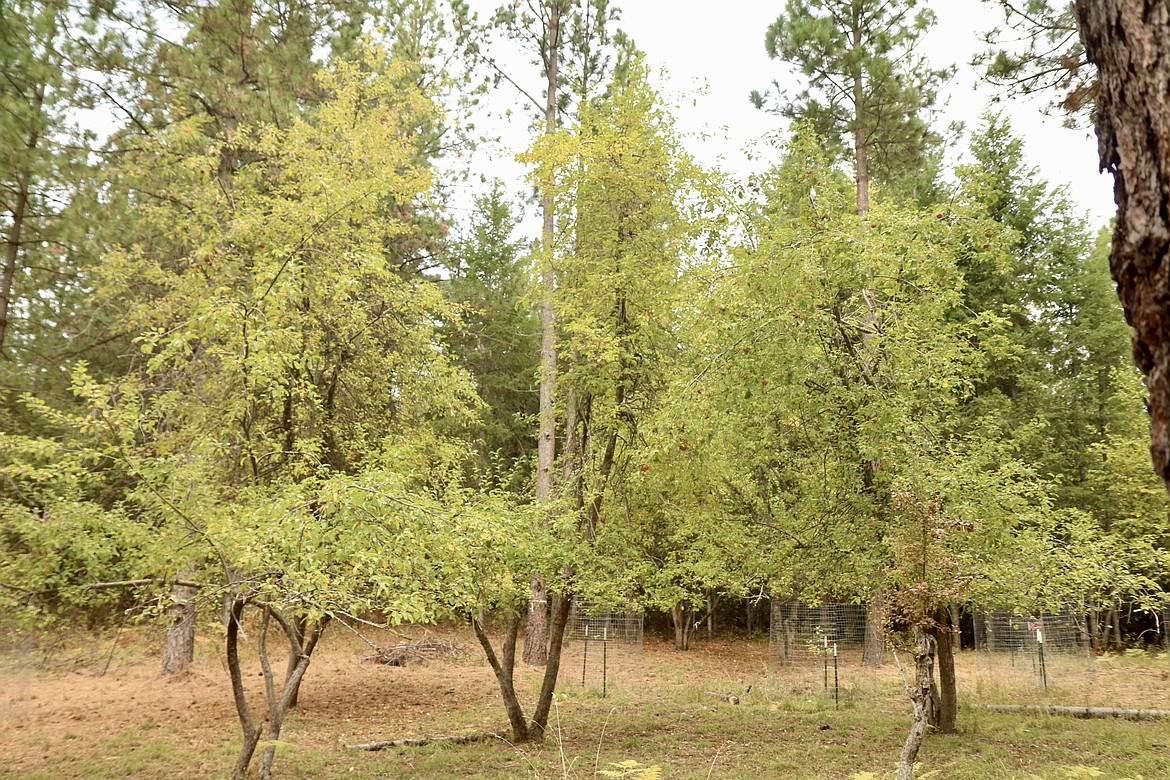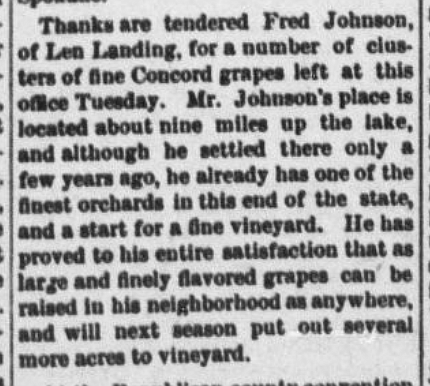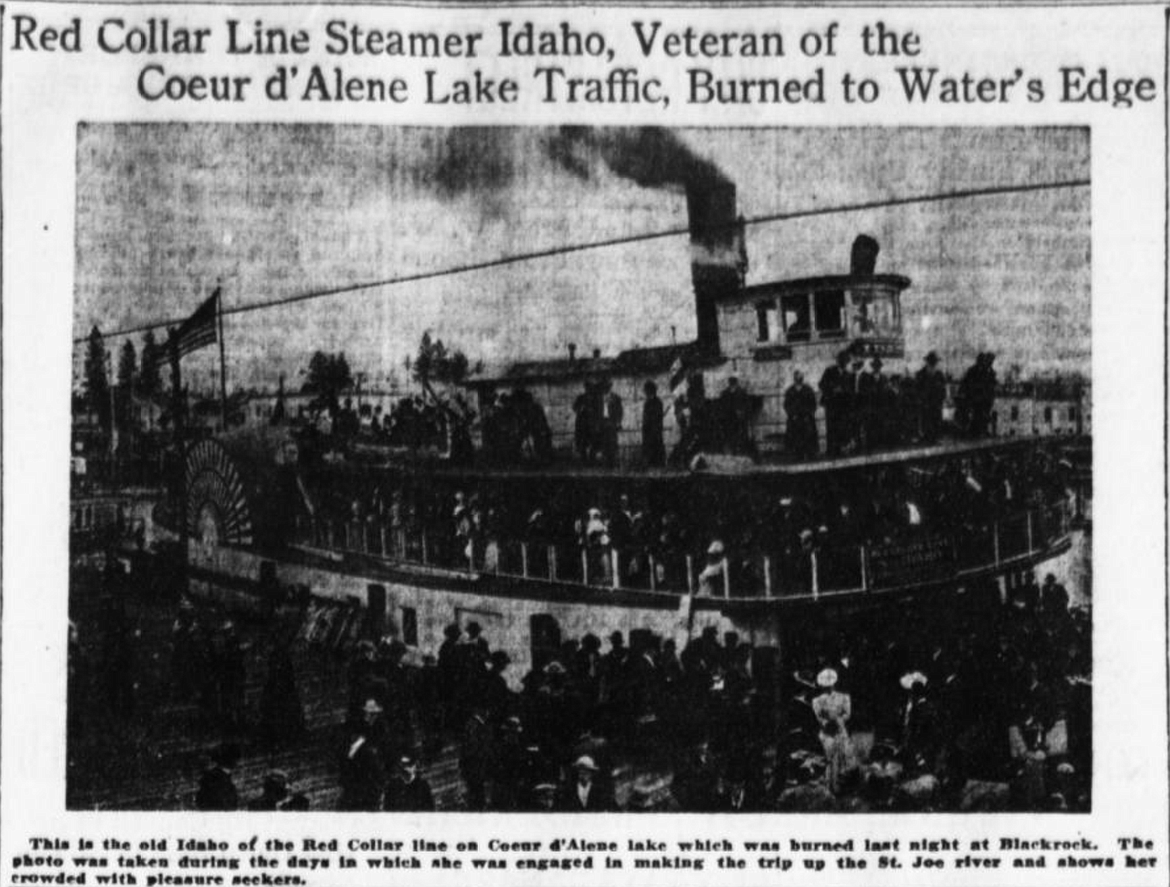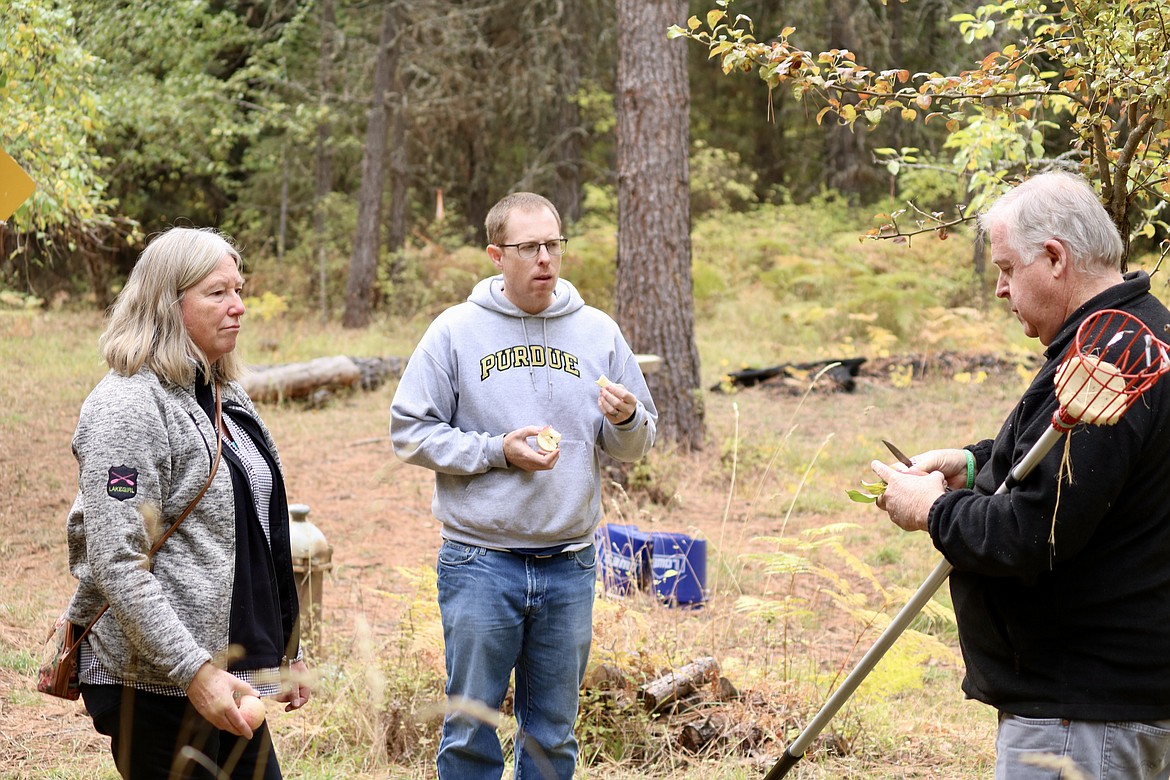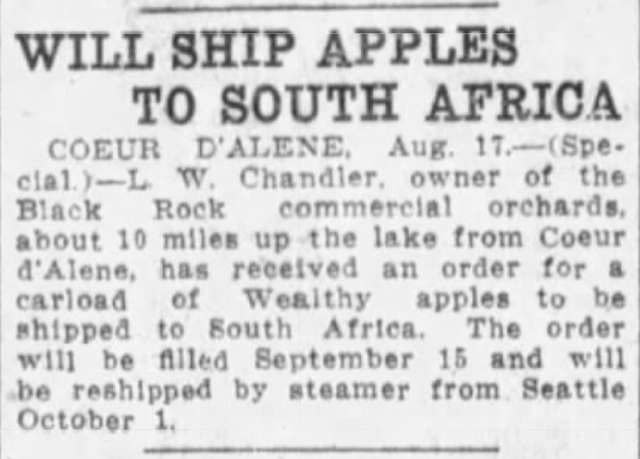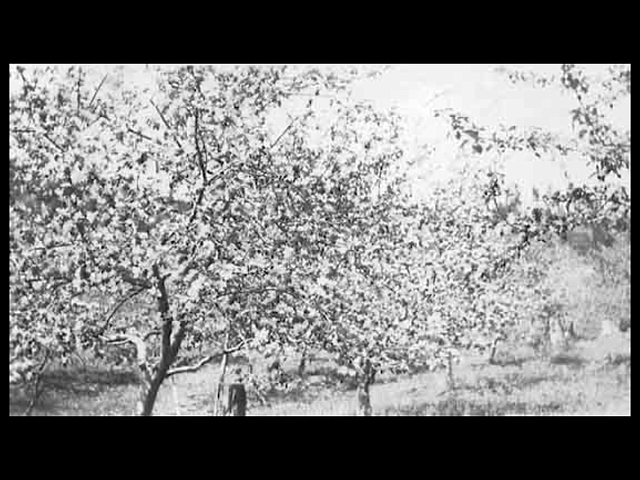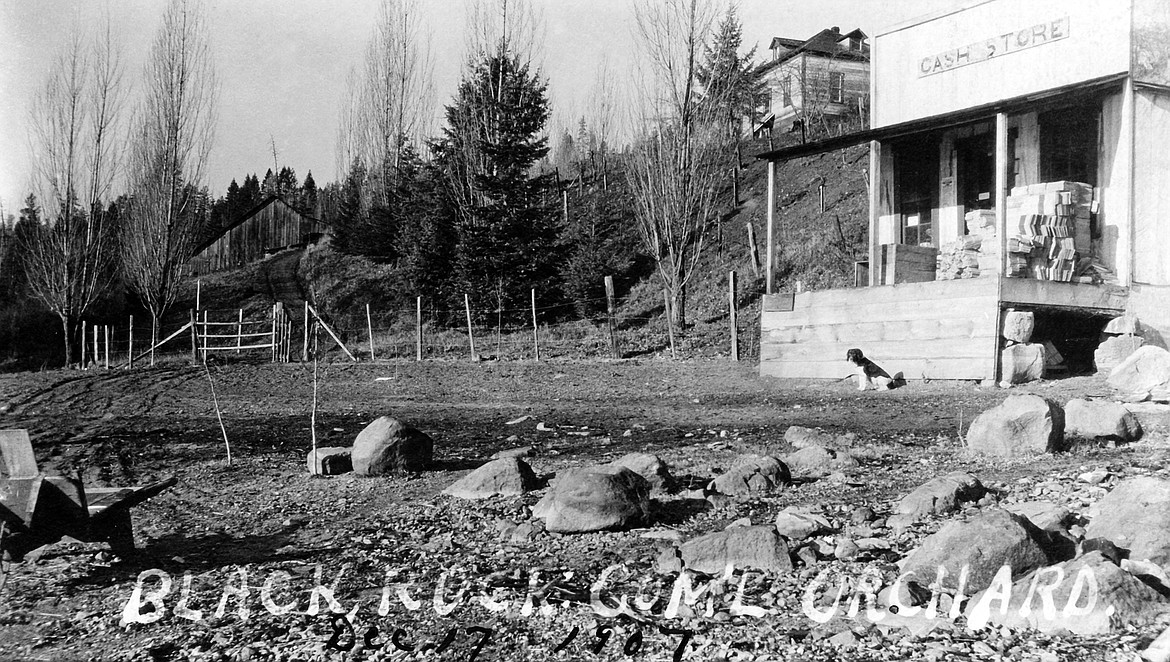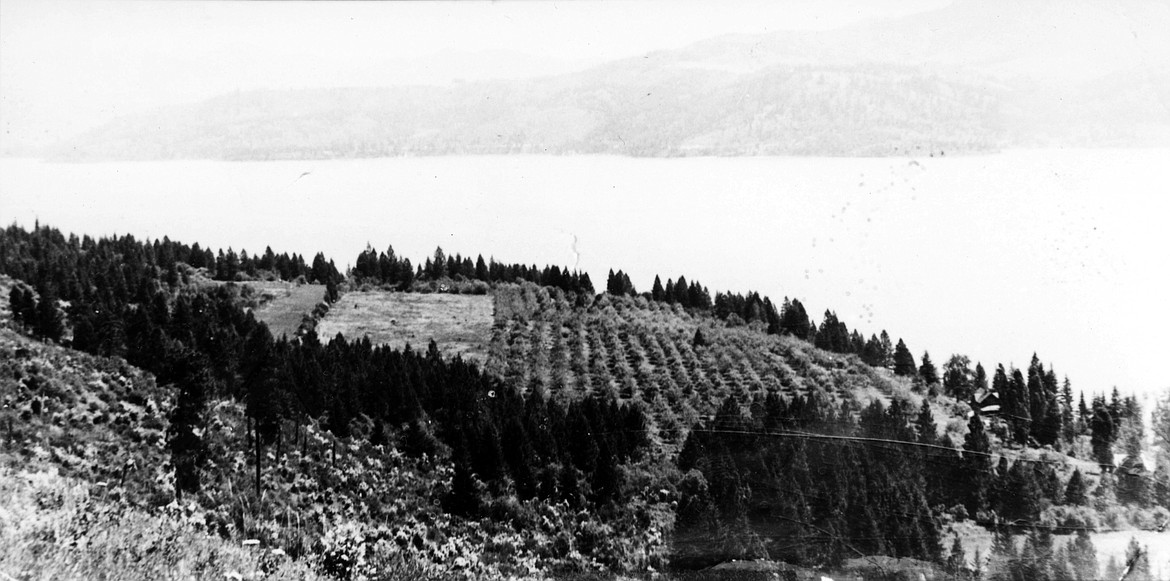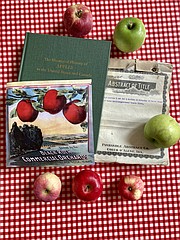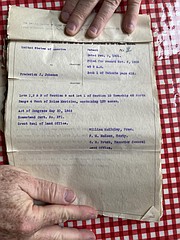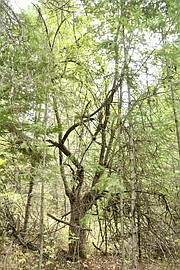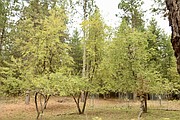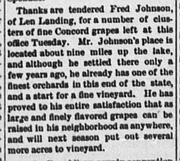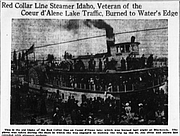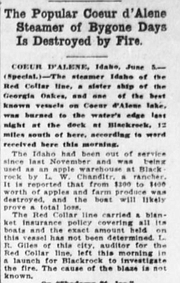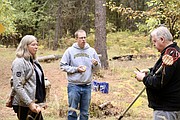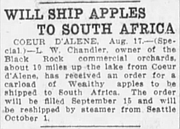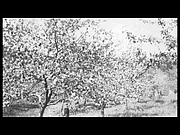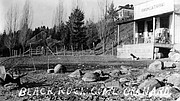New life in an ancient orchard
A string of bad luck brought Coeur d’Alene’s 120-year-old commercial apple orchard to a rough ending, but one family's passion is bringing it back.
Bill and Denise Glover of Black Rock have spent the last five years reviving the remaining trees of the former Black Rock Commercial Orchards, a property that’s been in their family since the 1940s.
“It's a lifelong dream of mine growing up here with the apples to be able to save these trees, the DNA, to make new trees for our grandchildren and their communities,” Denise Glover said. “There's just such amazing flavor.”
The orchard was started in the 1890s by Fredrick Johnson, an immigrant from Sweden, according to Coeur d’Alene Press archives.
Johnson filed a deed on Feb. 9, 1901, for 157 acres in Black Rock under the Homestead Act of 1862.
An Oct. 26, 1895, Press article reads, “Fred Johnson, who is opening up a farm near Black Rock, was in town Tuesday and became a subscriber to the Press. He is preparing to put out an extensive orchard.”
According to Press articles, Johnson sold apples, pears, peaches and grapes from the 1890s through 1915.
“I kept looking for search terms like Black Rock and orchard or apples,” said the couple’s son, Bryan Glover. “It was really interesting.”
An article dated May 22, 1897, says Johnson “set out 700 fruit trees which are making strong and healthy growth. He is also experimenting with different varieties of grapes and finds that the Concord does well in this locality.”
On Sept 24, 1898, The Press wrote that Johnson left Concord grapes at the Press office. “(Johnson) already has one of the finest orchards in this end of the state, and a start for a fine vineyard.” the article says.
A Press article dated May 1, 1907, reads Johnson and his brother Ed “are the largest fruit growers in this vicinity having a 30 acre orchard all in bearing at Blackrock.” The article says the Johnsons planned to add 10 more acres to the orchard over the summer.
Fast forward more than a century. Bill Glover said he and wife Denise realized when they moved to their Black Rock home full-time that the orchard was all grown over by forest. They discovered the varieties they had were rare.
“We started sampling what fruit there was, and saying, ‘Oh this taste is something worth saving,’” Bill said. “We started learning about how to do that and we're still learning.”
The family started clearing around the old trees, clearing almost a full acre and tagging them, as well as learning to propagate.
Much of the property has been sold off since Denise's grandfather bought it in the '40s, but the family still owns about 20 acres in the heart of the orchard between Denise and two sisters.
The Glovers said they found it interesting that their section of the orchard had many different varieties, which is unusual for a commercial orchard, but they think that section may be the area once used for experimenting.
So far the Glovers said they've identified 11 heirloom apple varieties with the help of the DNA program at Washington State University and apple detective David Benscoter.
“These are just wonderful apples. You want the next generations to be able to enjoy them all,” Denise said. “There’s a sense of urgency because most of these trees are 120 years old and they’re dying off.”
Denise said she has memories of picking apples when she visited her grandparents in summer as a child and the orchard was less overgrown.
To restore the orchard to some of its former glory, the Glovers are planting more heirloom apple trees to create more of a usable fruit orchard. Bill Glover said next year they're planning to take the pruning and clearing to the next level.
They might even be able to name a new apple variety if findings show fruit from one of the old trees hasn't been registered with the U.S. Department of Agriculture.
While they'll be bringing in a lot of apples, the Glovers said they don’t plan to go commercial. The project's focus is to save a piece of history.
“We just find it interesting to rescue this stuff and make sure that future generations can enjoy these plants,” Bill said.





